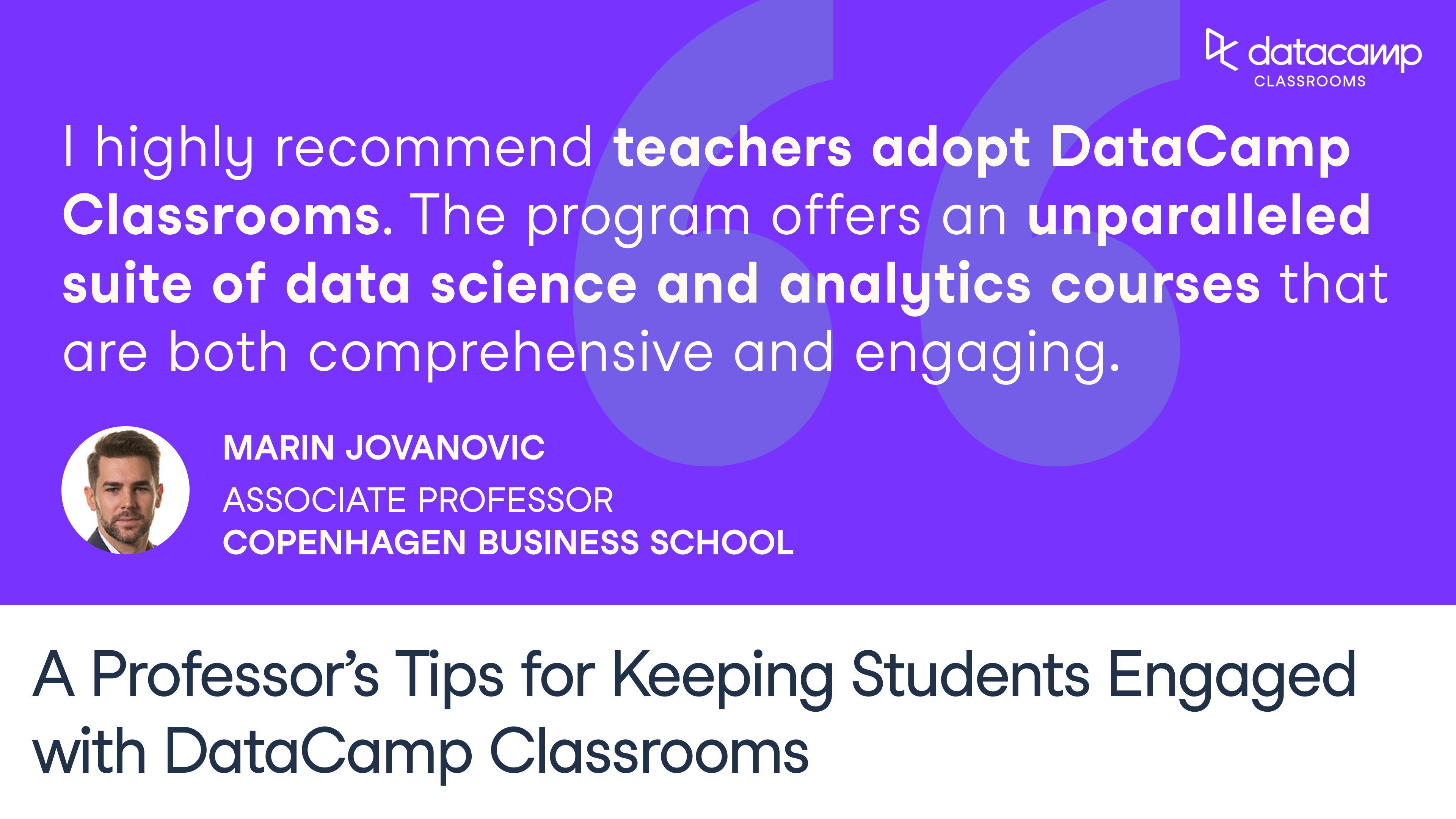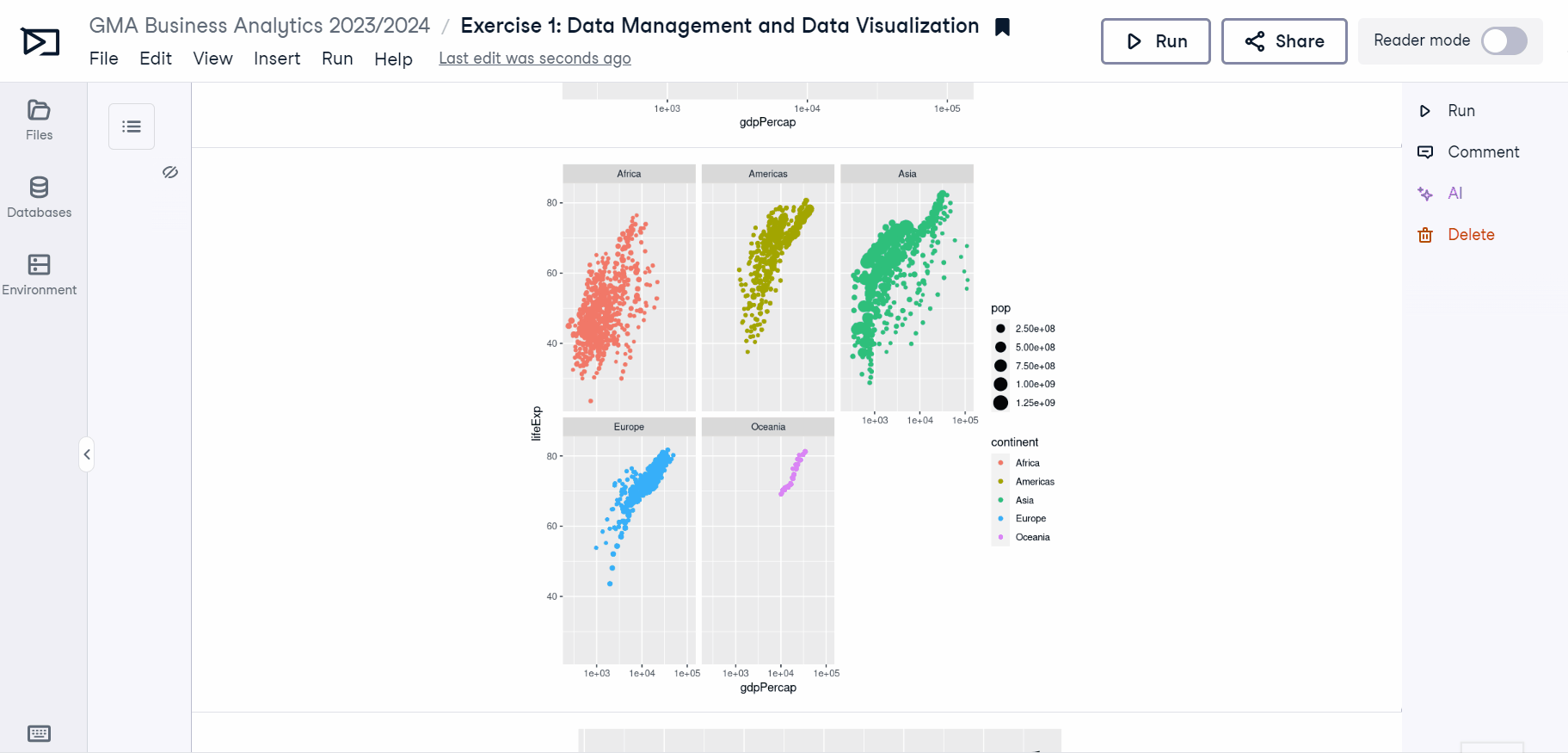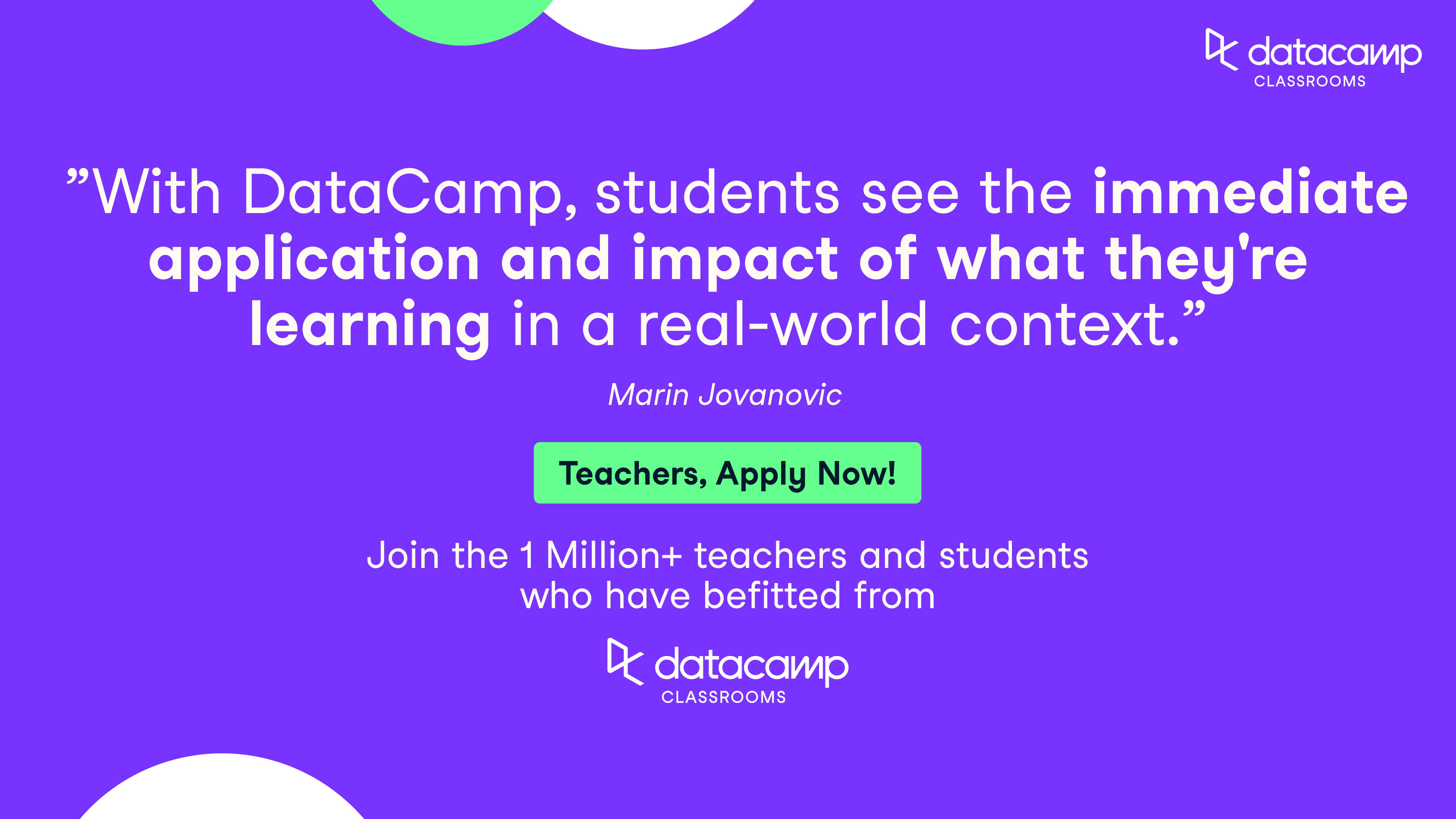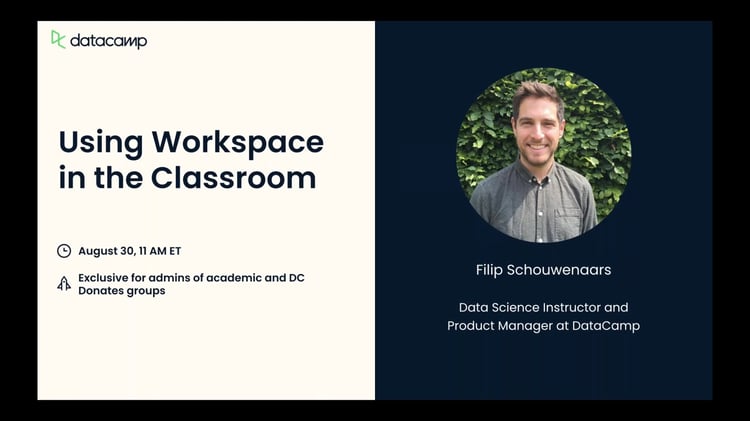
What courses do you teach using DataCamp Classrooms?
GMA Business Analytics 2023/2024. I'm a course coordinator for the Business Analytics course, MSc EBA programme: MSc in General Management and Analytics, GMA.
How long have you been using DataCamp Classrooms?
Less than six months.
What topics and technologies on DataCamp do you utilize?
R and the Theory-based courses.
Do you or your students have any favorite Learn content DataCamp that helps you teach your class?
Introduction to the Tidyverse.
Do you recommend other teachers get free DataCamp Classrooms?
I highly recommend that other teachers consider adopting DataCamp Classrooms for their courses. DataCamp offers an unparalleled suite of data science and analytics courses that are both comprehensive and engaging. Creating course materials of similar quality would not only be incredibly time-consuming but may also be impossible to achieve without significant resources.
Another noteworthy aspect of DataCamp Classrooms is its use of gamification in the learning process. The leaderboard feature, for instance, fosters a healthy competitive environment that motivates students to engage more deeply with the material. Assignments are my other favorite administrative feature of DataCamp Classrooms.
Moreover, DataCamp's integrated development environment (IDE), known as Datalab, significantly enhances the learning experience by providing hands-on practice sessions during and after teaching sessions.
How do you use Datalab to aid in instruction and collaboration?

In my course, which is structured with separate lecture and exercise sessions, I've found a unique way to integrate DataCamp's offerings to enhance both theoretical understanding and practical applications for my students. During the exercise sessions, I emphasize the use of R Studio to ensure that students gain hands-on experience with a tool that's widely used in the industry. However, I also make extensive use of Datalab, not as a replacement for R Studio, but as a complementary tool. I upload the clean R code to Workspace and utilize its AI commenting feature to provide feedback on the code. This approach has been very well received by my students, as it offers them additional insights and understanding of their coding practices.

Dr. Marin Jovanovic is an Associate Professor at the Department of Operations Management at Copenhagen Business School and a Visiting Scholar at Luleå University of Technology. He received a Ph.D. degree in industrial economics and management from the KTH Royal Institute of Technology and a Ph.D. degree (cum laude) in industrial management from the Universidad Politécnica de Madrid. His research has been published in academic journals, such as Org Sci, JPIM, R&DM, IJO&PM, PPC, Technovation, TFSC, IJPE, JBR, IMM & RTM. His research interests include the digital transformation of manufacturing, maritime, and healthcare sectors, platform ecosystems in the business-to-business context, and artificial intelligence. Marin serves as an editorial review board member for JPIM and JBR. Marin has held positions at the ESADE Business School and the University of Cambridge. Finally, Marin administers the blog about industry platforms research, https://www.industryplatforms.
Get your Free DataCamp Classroom Now
"Whether you’re teaching a pure data science class or something more multidisciplinary, DataCamp Classrooms is a tool every teacher and student should use.” — Mike Soltys, PhD. University of Colorado Boulder


